Participation
The Baltic Olympiad in Informatics is an individual contest between contestants from ten countries: Denmark, Estonia, Finland, Germany, Iceland, Latvia, Lithuania, Norway, Poland and Sweden. Each country can send up to six contestants. The current host country may send an additional, unofficial team. Contestants must be eligible to compete in IOI 2019 to be participants in BOI 2019.
Contest schedule
The contest days of BOI 2019 are Monday, April 29, and Wednesday, May 1. On each contest day the contestants will have five hours to complete three tasks.
There will be a practice session on Sunday, April 28, to familiarize the contestants with the contest environment. The solutions submitted during the practice contest will be graded, but the results will not be considered in the final ranking.
Environment and supplies
Each contestant will have a desk with a workstation as described in the “Technical information” section on the BOI 2019 website. Hardware is slightly different between computer labs we use for the contest, but software is identical in all of them.
Contestants can bring pens, pencils and erasers with them. Paper will be available in the contest room.
Each contestant may bring one wired USB keyboard and one wired USB mouse to replace the default ones provided with the workstation.
Each contestant may bring one printed, unannotated natural language dictionary. Contestants may bring small mascots such as stuffed toy animals.
Drinks and snacks will be available in the contest room, but contestants may also bring their own snacks.
Contestants are not allowed to bring any additional reference materials such as books, program listings or notes. Contestants may not bring any electronic devices (cell phones, digital cameras, etc.).
Contestants who want to bring any other items must contact the jury via their team leaders.
Any keyboards, mice, dictionaries or mascots must be brought to the contest room during the practice session. They will be checked and provided to the contestant during the contest sessions.
After the first contest day, the contestant must leave these items on their table if they want to use them during the second contest day. After the second contest day, the contestant must take any of these items with them.
Tasks and solutions
The tasks posed at BOI 2019 are intended to be of algorithmic nature. That is, the focus is on designing correct and efficient algorithms. In some tasks, also efficiency of implementation may be a factor. Each task will be divided into one or more subtasks, each worth a portion of the total points.
Unless stated otherwise in the task description, the solution of a task is a program written in C++ 11, Java 8, or Python 3 programming language in one source code file not exceeding 100 KB in size and 10 seconds in compilation time.
Solutions have to run within the time and memory limits specified for every task separately. If there is one time limit given in the task statement, it applies to all solutions. If there are two time limits given, the first one applies to solutions written in C++ and Java, and the second one to solutions written in Python. The memory limit is on the overall memory usage including executable code size, stack, heap, etc. Limits are applied to individual test runs.
Unless otherwise stated in the task description, solutions are required to read data from standard input and write to standard output.
Starting the contest
When contestants enter the contest room at the beginning of the contest, their workstations will be switched on. Contest tasks will be inside envelopes next to the workstations. The account details needed to access the contest system will be given to each contestant in the envelope with the tasks. Contestants are not allowed to open the envelopes or touch the workstations until the start signal is given.
The task descriptions are presented in English and the native language of the contestant if such translation is prepared by their team leader. In case of any discrepancies, the English text is binding and official.
Assistance and requests
During the contest, communication is allowed only with room supervisors and the Scientific Committee.
Contestants may ask a room supervisor for assistance at any time. The supervisors will deliver paper, attend to hardware problems, help to find toilets, etc. However, the supervisors will not answer questions about the contest tasks.
Contestants can submit questions about the contest tasks via the contest system. The question can be written in English or in the contestant’s native language. In the latter case the question is translated into English by the team leader.
A question about a task should be phrased so that a yes/no answer is meaningful. The Scientific Committee will answer every question submitted by the contestants. The answer will be one of the following:
- “YES”
- “NO”
- “ANSWERED IN TASK DESCRIPTION” — The task description contains enough information. The contestant should read it again carefully.
- “NO COMMENT” — The contestant is asking for information that the Scientific Committee cannot give.
- “INVALID QUESTION” — The question is not phrased so that a yes/no answer is meaningful. The contestant is encouraged to rephrase the question.
If similar questions are submitted by several contestants, the Scientific Committee may give an announcement via the contest system.
Submission and grading
The contestants submit their solutions via the contest system and can use the system to view the status of their submissions. When a solution is submitted, it will be compiled and graded, and after this, the contestant will be able to view the results of all test cases (full feedback). However, input and output data are not shown to the contestant. The submission rate of each contestant is limited to one submission every 60 seconds.
Each submission will be graded on several test cases. Each test case will have one of the following outcomes:
- CORRECT
- PARTIALLY CORRECT
- NOT CORRECT
- TIME LIMIT EXCEEDED
- RUNTIME ERROR
Test cases are grouped into subtasks, each worth some points. Unless stated otherwise in the task description, points for a subtask are given only if every test in it is solved correctly and within time and memory limits. The score for a submission is the sum of the scores of that submission over all subtasks. The final score for a task is the maximum score of all submissions to the task.
The contestants will see their scores in the contest system. However, there is a small chance that the score will change later due to appeals: submissions may be re-graded, and the final score will be that yielded by the last grading.
Grading procedures for a task can be overridden in the task description.
Ending the contest
Contestants will be given warnings 30 and 10 minutes before the end of the contest. After the end of the contest, no further submissions will be included in a contestant’s score.
Cheating
Any of the actions outlined below are considered illegal during contest sessions:
- Using any printed materials, except official BOI 2019 materials and unannotated natural language dictionaries brought to the practice session and cleared for use in contest sessions.
- Using any electronic devices or data carriers, except official BOI 2019 equipment and keyboards and mice brought to the practice session and cleared for use in contest sessions.
- Communicating in any form to other contestants or people other than BOI 2019 staff.
- Using a workstation or an account assigned to someone else.
- Tampering with or compromising the contest system.
- Attempting to gain access to the hidden test data used for grading solutions.
- Attempting to store information anywhere other than the home directory of their account.
- Attempting to access any machine other than their own or the contest system.
- Attempting to reboot or alter the boot sequence of another workstation.
- Any other action that is deemed by the Scientific Committee as intentionally aimed at gaining unfair advantage over other contestants.
Moreover, the following rules apply to submissions:
- Submissions must not attempt to access any files on the file system.
- Submissions must not attempt to use network functions.
- Submissions must not try to execute other programs.
Breaching any of the rules outlined above may be considered cheating and may result in disqualification.
Appeal process
After each contest the contestants will have time to check the full results of their submissions, including test data used in grading.
In case of any disagreement with the results the team leader may submit an appeal. The Scientific Committee will answer each appeal and give a short report to the team leaders about all appeals received after each contest.
Medal allocation
All contestants are ranked in descending order with respect to their final scores. Gold, silver and bronze medals are awarded to the contestants using the following algorithm:
- The minimum score for a gold medal is the greatest score so that at least 1⁄12 of the contestants will get a gold medal.
- The minimum score for a silver medal is the greatest score so that at least 1⁄4 of the contestants will get a gold or a silver medal. A silver medal is given to those who obtained this score but did not obtain a gold medal.
- The minimum score for a bronze medal is the least score so that at most 1⁄2 of the contestants will get a medal. A bronze medal is given to those who obtained this score but obtained neither a gold nor a silver medal.
The unofficial host team is not included when computing the medal boundaries. However, they are eligible to receive medals according to their achieved scores.

